The Duty of Supervision in the Age of Generative AI
For businesses engaging in AI, nowhere is the risk more fraught than in a specific type of highly regulated organization is accountable to a myriad of stakeholders: U.S. publicly held companies. Legal Decoder, along with Bevilacqua PLLC and Professor Nancy Rapoport, have written a whitepaper that focuses on the principle that GenAI policies and procedures at a publicly held company must come from its board of directors and executive team. Read More
“This article highlights for busy board members and C-suite executives the dangers of not paying attention to Generative AI. The risk to publicly held companies from non-supervised implementation of Generative AI is significant. The authors make a solid case best practices are warranted to protect the corporation and the decision-makers.”—Kyung S. Lee, Shannon & Lee LLP, program co-chair.
Best Practices for Recording Billable Time
Ask any private attorney what he or she likes least about practicing law and having to record time in 0.1 increments would more than likely be number one. As a former litigator, I can speak firsthand about the drudgeries of billing time. Although it can be a tedious and time-consuming endeavor, it is not an intellectually difficult task, and is an essential part of the business of law. Download the Paper.
COVID-19 Could Catalyze The Legal Industry Renaissance
As the COVID-19 pandemic rages on, the focus unsurprisingly has been on the exigent and obvious. No matter which industry you’re in, this pandemic threatens not only your life but your financial health. Though much has been written about industries in peril, far less has been written about industries— like law—that are poised to enjoy a Renaissance. During times of crisis, experts reflexively draw comparisons between seemingly similar events. Legal industry pundits are busily comparing the economic impact of the COVID-19 pandemic and the financial ruin created by the Great Recession of 2008. Such comparisons are, at best, shaky. Those pessimistic pundits are conflating both events and forecasting only doom and gloom. We think they’re wrong. Read More.
Leveraging Legal Analytics and Spend Data as a Law Firm Self-Governance Tool
In a world in which even top-tier law firms are fighting a multi- front battle for clients, and only the most profitable parts of medium-sized law firms are absorbed into megafirms, many law firms are missing an opportunity to increase profitability by self-assessing their performance with legal analytics. Just as advances in data-centric technologies made certain old-economy jobs obsolete—for example, slide rules gave way to phone apps that can do the same types of calculations—attorneys who budget and bill based on gut hunches rather than data-driven analyses will be hard-pressed to strike the right balance between ethical obligations to keep fees reasonable and the ability to make a good living. Read More.
Toys ‘R’ Us Bankruptcy Legal Fees Explained
This case study highlights the process that the court appointed fee examiner used to sort through over $150 million in legal fees submitted for payment and recommend what was reasonable according to the U.S. Trustee’s Office 2013 guidelines for compensation and reimbursement. Professor Nancy B. Rapoport of the William S. Boyd School of Law at UNLV set out to establish billing standards and efficient processes to determine if fee applicants have satisfied their burden to justify fees and expenses. She enlisted the assistance of Legal Decoder’s legal analytics software platform to help with this daunting task. Click here to download the case study.
Re-imagining Legal Spend Decisions in an Evolving Industry
For the past decade, the legal industry has been transforming itself. Much of the change has resulted from legal industry disruptors (technological innovations, data analytics tools, and alternative service providers) that have affected the legal service delivery model.
The most forward-thinking legal industry leaders are reimagining how the legal industry’s historic “rate x hours = price” economic model delivers the optimal value.
To read more, click here
Pricing Legal Services Case Study
Pricing legal services is an ongoing topic that more firms are starting to address head on to ensure prices are commensurate with costs. This case study details pricing insights gathered from our data sets using the Pricing Engine. The case study also shows how data analytics can help with your pricing strategies. Download here.
Bankruptcy Case Study
A retrospective case study on a publicly-funded bankruptcy where billing data was analyzed to highlight problematic billing practices. Download here.
Case Study: How a Law Firm’s Risk Management Initiative to Reduce Malpractice and Over Billing Risk Was Fueled By Legal Decoder and Professor Nancy Rapoport
What do prudent general counsel of law firms do when they want to make sure that their risk management systems—as they relate to billing behavior—are best-in-class? The General Counsel of one AmLaw100 Firm decided to be proactive to make sure that his Firm was at the top of its game. Download here.

